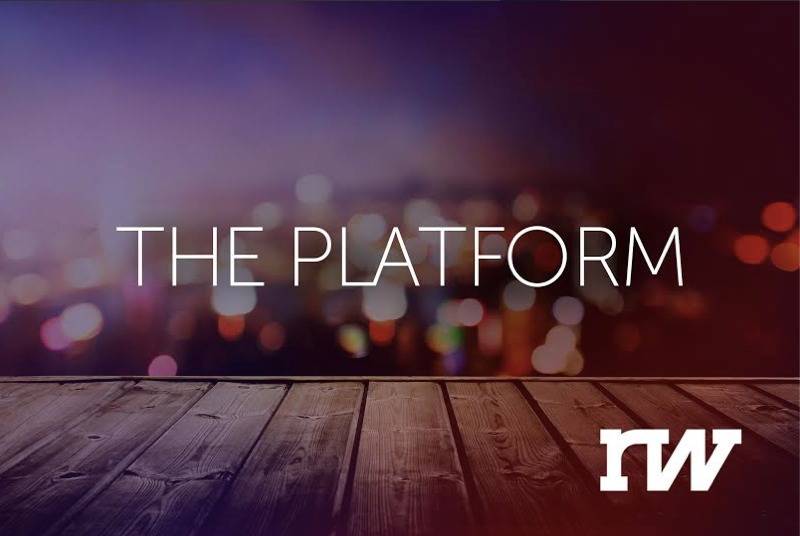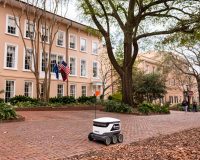
The Platform is a regular column by mobile editor Dan Rowinski. Ubiquitous computing, ambient intelligence and pervasive networks are changing the way humans interact with everything.
Twittering laughter fills the air at the new Techstars office on the edge of Chinatown in Boston, as dozens of young engineers, designers, and marketers gather to raise a glass to Katie Rae, a startup veteran with short, curly blond hair and unstoppable energy. It’s the end of Demo Day, an annual ritual for Techstars Boston, where Rae is the managing director. Patrón tequila is poured, and grins abound, for this is a moment of catharsis—the end of an intense, three-month sprint to turn an idea into a company. Most of the faces in crowd are young, full of youthful exuberance and a naïve hope that their company is going to make a difference. The collective energy is difficult to miss.
The program’s new graduates are making plans, many of them having freshly cashed checks from venture capitalists to fuel their ambitions. Rae gives a short but inspiring speech and sends the companies on to their uncertain futures.
The toast is an annual rite of passage for Boston’s startup scene. Techstars has become a power player in places like Boston, Boulder and Seattle: The program, known as a startup accelerator, takes entrepreneurs and offers them office space, funding and advice, taking a stake in the companies in exchange. Think of it as a cross between a landlord, summer camp, and venture-capital firm. It has graduated nearly 100 companies in Boston alone, generating millions of dollars in funding and local revenue. That’s money that cash-strapped cities crave as they attempt to create a new economy based on technology and innovation.
Startup accelerators have lost a bit of luster in the past couple of years. Boston still stings from the departure of Y Combinator, the accelerator known for backing Airbnb and Dropbox, in 2009 for Silicon Valley. Arguably, the excitement over each successive Techstars Boston class has lessened year by year. Copycat programs run by people with lower standards, both financial and moral, have given startup accelerators a bad name and drawn a wary eye from investors and media.
All of that is hard to see when dozens of proud young entrepreneurs raise their cups to toast Rae and the other mentors who advised them. In their minds, the companies they’ve just created from scratch are the future of innovation, built around a core of community. Some will live up to this promise. Others will flop, or just fade away.
That is always the process of creation. Without uncertainty, nothing new would get built. And then we would miss the innovations that Techstars and its ilk are chasing. By studying them, we get a glimpse of the future.
Smart Data, Quantified & Clean
Take Woo Sports, for example, which makes a data-capturing gadget for extreme sports athletes. You can clip a Woo device onto something like a snowboard or kiteboard and it will track how fast you go and how high you jump. It then transfers the data to a smartphone, and from there, to the cloud, where it’s crunched and analyzed.
Woo hopes to tap into the popular extreme-sports market, which brands like Red Bull and ESPN’s X Games have shown to be a big business. It’s taking established trends—the quantified self and sensor data, ubiquitous networks and cloud computing—and applying them to a specialized set of consumers. The challenge for Woo is becoming a household name among the extreme-sports set—because all the data-gathering capabilities in the world won’t help it unless athletes clip it on.
Ecovent is another company tapping into established trends to exploit a defined market. Ecovent makes wireless heating and cooling vents that promise to stabilize temperature fluctuations in your house. For instance, if your upstairs bedroom is consistently 10 degrees warmer than your downstairs living room, Ecovent can bring the house into equilibrium, saving home owners from installing more expensive venting systems. That goes beyond the out-of-the-box capabilities of simple thermostats like Nest. (Annual global spending on heating, ventilation, and air-conditioning systems is estimated at $80 billion.)
Quote Of The Day: “We have been talking about net neutrality for a decade; it is time to put something in place—and to do it with dispatch.” —FCC chairman Tom Wheeler on net neutrality regulation.
Creating data you can take action on was a prime theme among Techstars Boston companies this year. Cangrade is a company that helps other companies make hiring decisions by mixing psychological applicant profiles with data analytics. HermesIQ, founded by a physician who is also a code developer, is a document- and data-scanning program for healthcare professionals who are often buried in mountains of faxed documents. Onion is looking to create a standard and easy-to-implement cloud platform for the Internet of Things—an area where it will have to contend with Qualcomm’s more established AllJoyn effort, which speaks to the startup’s ambitions.
Connecting People For Work And Play
Then there are the companies which focus on the Internet’s ability to bring people together. Amino is a mobile community platform that looks to replace the stodgy old message boards that have defined the Internet for more than 20 years. It focuses on teenagers with specific interests, like Japanese anime cartoons. WorkMob is a dashboard to hook up freelance developers and designers with companies that need work on particular projects.

Litographs is an interesting addition to Techstars. On the surface, you might look at it and see a T-shirt company, but that ignores the fact that it takes advantage of advanced technology to create a one-of-a-kind product. Litographs scans popular books and use the text from those works to create merchandise. For instance, if you want a T-shirt or a poster of Nick Carraway and Daisy Buchanan from The Great Gatsby printed in the actual words from the book, Litographs can make it for you (see right). On the back end, Litographs is taking advantage of scanning and printing technology to help it manufacture and deliver its goods. But, you may ask, who would actually want a T-shirt like this? Plenty of people, apparently. Litographs had already sold more than $1 million worth of them before it presented at Demo Day this week.
Data and hardware, productivity and play: The lessons learned from Techstars are an affirmation of the direction the technology industry is taking in 2014. From data-driven projects to the quantified-self revolution, almost all of the companies are using mobile technology as a distribution platform and the cloud for computing. Not all will make it. But all have something to teach us.
For that alone, they’ve earned the right to raise their glasses and toast to their futures.





















